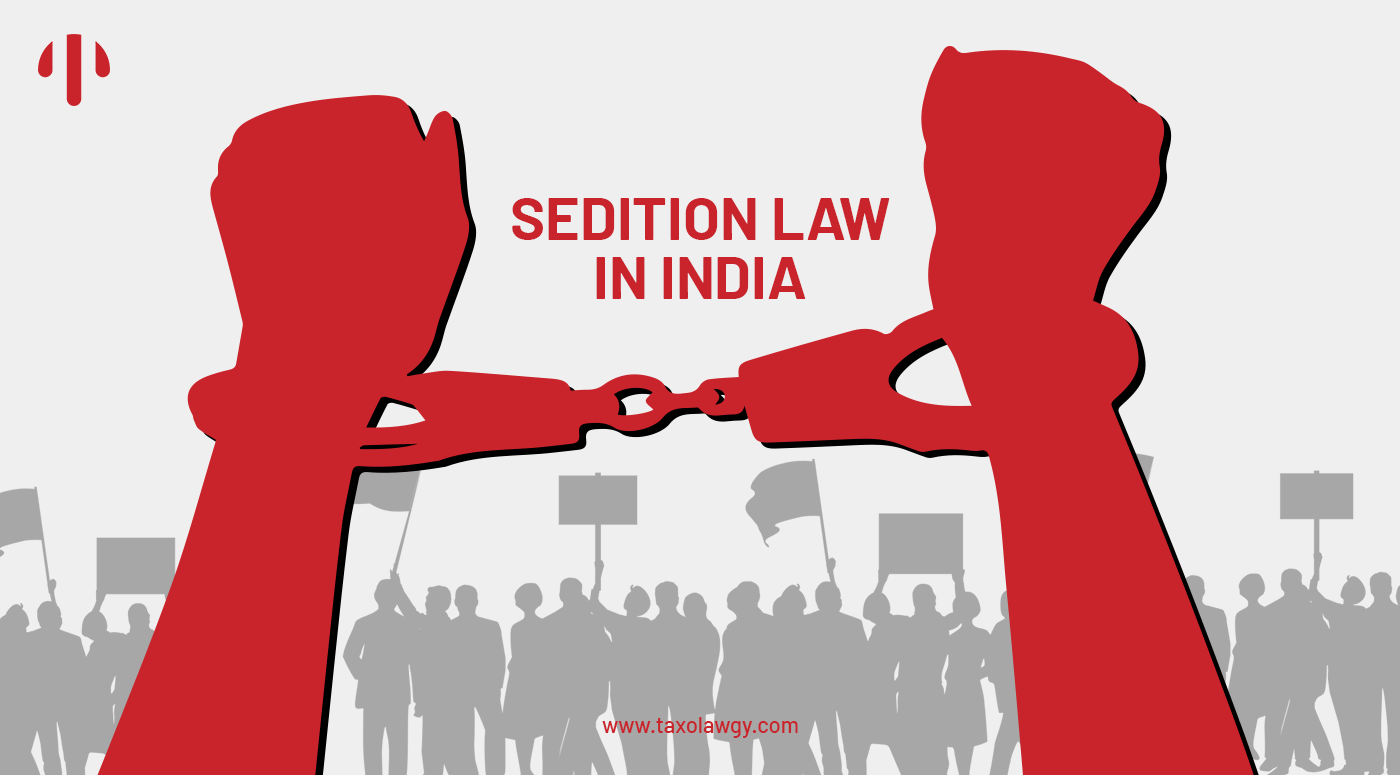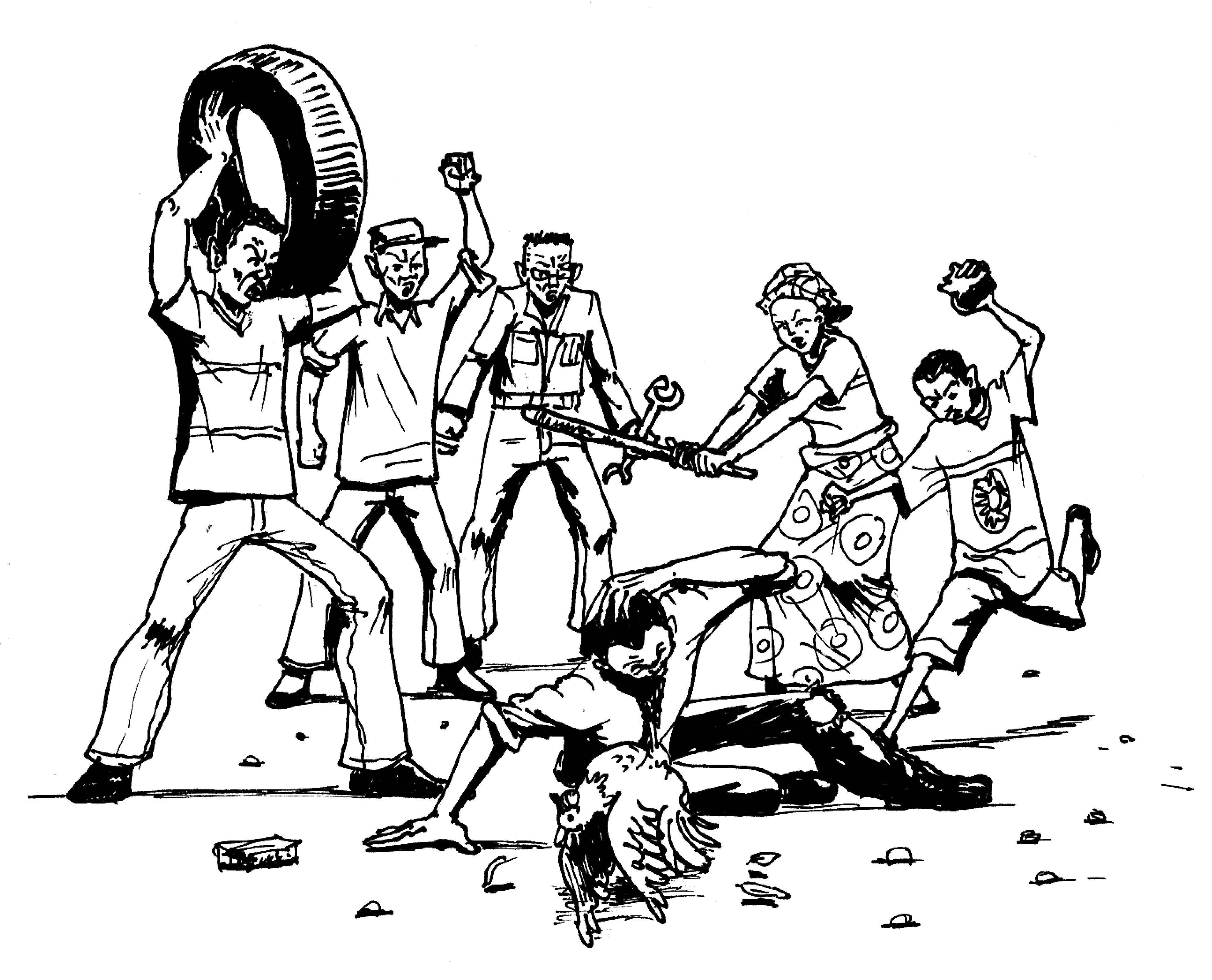
March 15, 2022
Shagun Shahi Chugh
SEDITION LAW: REPEALED, REFRAMED, REPLACED OR RELIED
India has gone through major changes since the colonial era but what has remained consistent and survived many challenges is Sec 124A of the Indian Penal Code or Law of Sedition, Gandhiji mentioned it as “ the prince among the political sections of IPC designed to supress liberty of citizens” and Nehru Ji stated that said provision is “obnoxious”, “sooner we get rid better”, “highly objectionable” but on the contrary at present Sec 124A thrives and quells dissent better than ever, and is one of the frequently relied upon draconian law in the arsenal of the lawful elected government.
History
Originally, the Law of Sedition was not a part of Indian Penal Code, 1860 but was later inserted in Chapter 6 (Offences against State) of the code as Sec. 124A in 1870 on the grounds that it was missed by mistake, Britishers used this provision to quell dissent, quieten criticism, stop protests, punish freedom fighters, among many freedom fighters which became victim to this unjust law some of them are Bal Gangadhar Tilak, Mahatma Gandhi, Bhagat Singh.
Post-Independence in 1948 Indian leaders agreed to drop “sedition” from the constitution, and in the constitution adopted on 26 November, 1949 sedition was not a part of constitution though it remained a part of IPC, 1860 but later in 1951 contrary to his views on Sedition our respected first PM Nehru vide first amendment introduced “reasonable restrictions on freedom to free speech” under Article 19(1)(a).
Text
124A. Sedition.— Whoever by words, either spoken or written, or by signs, or by visible representation, or otherwise, brings or attempts to bring into hatred or contempt, or excites or attempts to excite disaffection towards, the Government established by law in India, shall be punished with imprisonment for life, to which fine may be added, or with imprisonment which may extend to three years, to which fine may be added, or with fine.
Evidently, a verbatim reading of Sec 124A shows that it is a classic example of ambiguous drafting and further, its flexible reading by authorities provides a lot of undue power, reason of which cases of Sedition are on steep rise but filling of chargesheet, trials and finally conviction are at abysmal low.
CONCEPT AND MISUSE
In contemporary India the relevance of the Law of Sedition is not same as in the colonial era, at that time it was used as an iron rod to curb any kind of dissent, criticism and silence the voices of national movement with maximum punishment being life imprisonment, but in the contemporary India the law needs to be read strictly to only stop speeches or writings inciting violence and disturbance, not to affect the much needed dissent and criticism of the ruling government, as Howards Zinn has correctly put “Dissent is the highest form of patriotism”
In Ram Nandan vs State of UP (1958) the High Court of Uttar Pradesh in its judgement declared law of sedition as void and unconstitutional but said judgement was set aside in Kedar Nath vs State of Bihar (1962) by Hon’ble Supreme Court, the court reasoned that the penalization of sedition is a constitutionally valid restriction on the right to freedom of expression only when the words are intended to disturb public peace by violence.
Later in cases such as Balwant Singh & Anr vs State of Punjab, the SC dropped charge against the accuses who raised slogans in favour of independent Sikh State and held that as slogans did not tend to lead to any disturbance or incite violence to the mind of normal person. In other judgements of 2011 Hon’ble SC concluded that “only speech that incites to imminent lawless action can be criminalised”.
In M/s Kusum Ingots & Alloys Ltd vs Union of India 2021, Hon’ble Supreme Court dismissed a petition to declare Sec. 124A as unconstitutional and void, wherein it was held that no law can be challenged without any cause of action and directed petitioner to bring a stronger case.
Presently, petitions are filed by Retired Army General and Senior Journalists at Supreme Court highlighting dramatical jump in charging people under Sedition law, and Supreme Court has asked petition to serve a copy of petition to Attorney General for his views on more than 150 years old law.
Having regard to various judicial interpretation of Sec 124A our authorities have many times continuously, repeatedly and knowingly increased the ambit of Sec 124A for their personal gains to include any kind of dissent and criticism, some of the latest examples are Misuse of sedition law in farmers protest where some of senior journalist and MP were charged with sedition, a 22 year old activist also charged with Sedition for allegedly making a toolkit, framing of sedition charges against a mother in Bengaluru when her minor daughter attended anti CAA protests.
Illustration
To correctly put Law of sedition and its use in with help of illustration:
Words, writings, signs and visual representation to incite violence and disturbances, valid criticism, peaceful protests, dissent are like different levels/ types of fire, similarly contemporary relevance of Law of Sedition is like a fire extinguisher, a proper application of mind is “sine qua non” before application of law of sedition/fire extinguisher, using it in arbitrary and prejudicial way will douse each and every fire and not all fire burns or damages many provide light, warmth and meals.
CONCLUSION
The Law of Sedition is like an iron rod in hands of those in power, it wields great strength, power and responsibility it shall only be used to deter threat to nation not mere dissent, further, it needs to be used reasonably, as it is rightly put in S. Rangrajan’s case that “the words must be judged from the standards of reasonable, strong-minded, firm and courageous men, and not those of weak and vacillating minds, nor of those who scent danger in every hostile point of view”.
The freedom of expression is “Sine qua non” for a healthy and thriving democracy and citizens of country should also keep in mind his/her duties to nation to keep and ensure society is flourishing and peaceful and likewise the legislatures and courts must recognize that restriction on expression should be properly listed and not implemented without proper application of mind. The Law is neither bad nor good the person in power implementing makes any law good or bad, similarly Law of Sedition should not be used by authorities with whims, caprice or prejudices.
Current, Law of Sedition is archaic law which is like a medieval vaccine for contemporary virus, it should be repealed, reframed or replaced but not relied upon.





